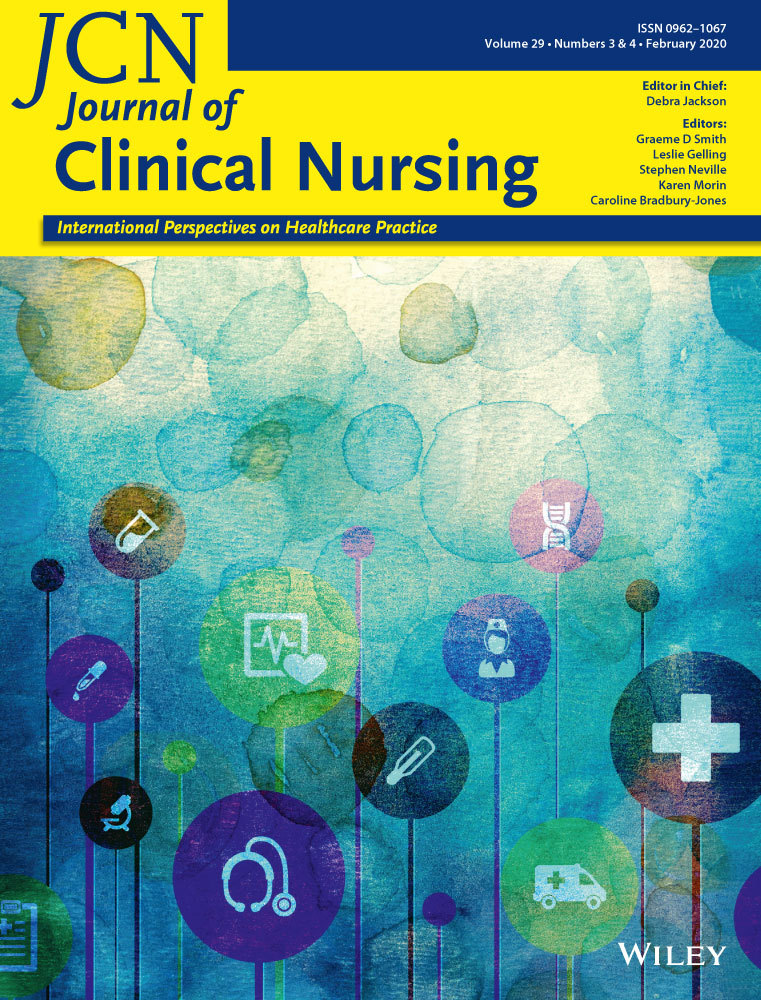The relationship between perceived difficulty and reflection in the practice of discharge planning nurses in acute care hospitals: A nationwide observational study
Funding information
This research was supported by JSPS KAKENHI Grant Number JP 17K12137.
Abstract
Aims and objectives
To clarify the characteristics and practice of discharge planning nurses in acute care hospitals and to elucidate the relationship between subjective difficulty perceived in practice and reflection.
Background
The importance of discharge planning for an effective transition from the hospital to a care facility is increasing. In acute care hospitals, however, it is not clear what discharge planning nurses are doing for patients who are highly dependent on medical treatment, the subjective difficulties they perceive in practical activities, and whether reflection by nurses can be expected to mitigate those difficulties.
Design
Cross-sectional survey.
Methods
This survey was conducted in 2,379 acute care hospitals in Japan from 1 June–30 June 2018. The survey of discharge planning practice activities examined nine factors. A nurse who answered that he/she did reflect on his/her practices was defined as a self-reflecting nurse. The STROBE statement checklists were completed.
Results
Questionnaires were collected from 760 respondents (response rate = 32.1%). The discharge planning nurses had fewer than 36 months of experience with discharge planning. Among the nurses who had been involved in hospital discharge support for 13 months or more, the self-reflecting nurses had fewer perceived difficulties in their practice activities than the non-self-reflecting nurses did.
Conclusions
It was shown that discharge planning nurses with 13 months or more of experience and who practiced reflection on their practical activities perceived less subjective difficulty. Reflection in daily practice may mitigate the subjective difficulty of practical activities experienced by discharge planning nurses, and the establishment of an effective training method that promotes such reflection is required.
Relevance to clinical practice
In the future, it will be necessary to construct and evaluate an effective education programme for discharge planning nurses that includes self-reflection on practice cases.
CONFLICT OF INTEREST
The authors declare no conflict of interest.




